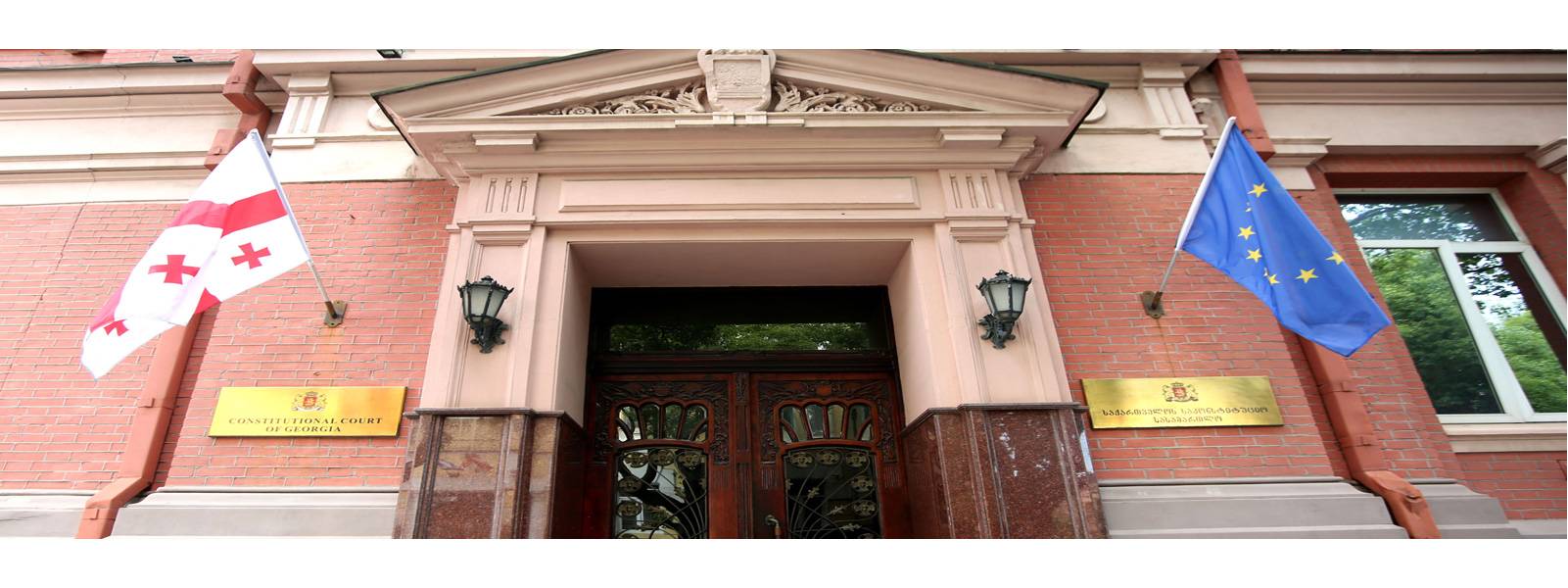News
The Constitutional Court of Georgia partially upholds Constitutional Claim №1395
On 19 September 2025, the Second Board of the Constitutional Court of Georgia partially upheld Constitutional Claim №1395 (“Giorgi Khorguashvili v. the Parliament of Georgia “).
According to the №1395 Constitutional Claim, the disputed provisions of the Civil Code of Georgia, on the one hand, define the enumeration and sequence of legal heirs, and on the other hand, regulate the procedure for transferring heirless estate as property to the state, and in certain cases, to the custodianship authority .
The claimant argues that the disputed regulation violates the constitutional right to inheritance because it prevents a stepchild, one closely connected to the stepparent, from inheriting the stepparent’s property when there are no heirs within the first five degrees of succession. Furthermore, with regard to the right to property, the claimant considers that the norm under which heirless estate is transferred to the state, rather than to the stepchild is unconstitutional.
In addition to this, from the claimant’s perspective, the regulation was problematic in terms of the right to equality. It allowed heirless property to be transferred to the custodianship institutions, while the same rule did not apply to individuals without such institutional status - including stepchildren - even when they had provided the decedent with comparable care and financial support.
According to the defendant, a stepchild does not satisfy the criteria established by the legislator in compliance with the requirements of the Constitution, which define the circle of legal heirs under the law. Accordingly, the stepchild is not a subject of the right to legal inheritance. With regard to the right to equality, the defendant noted that the comparative subjects identified by the claimant are not essentially equal. Therefore, there is no violation of the right to equality.
The Constitutional Court of Georgia considered that given the specific nature of the institution of legal inheritance, the criteria adopted by the legislator as a guideline, in particular blood relationship with the heir and a legally verifiable relationship based on the decedent’s expressed will during their lifetime - constitute internationally recognized, foreseeable, practical, and reasonable criteria. These criteria may serve as a basis for presuming the decedent’s presumed will for the purposes of determining the circle of legal heirs under the law. Since the stepchild does not satisfy any of the aforementioned criteria, their exclusion from the circle of legal heirs under the law does not violate the constitutionally guaranteed right to inheritance.
With respect to the right to property, the Constitutional Court of Georgia explained that the factual possession of heirless property by a stepchild does not establish a sufficiently strong legal connection to the property that would qualify as acquired ownership for the purposes of the Paragraph 1 of Article 19 of the Constitution of Georgia. Furthermore, under Georgian legislation, a stepchild has never been recognized as a legal heir. Consequently, the stepchild could not have formed a legitimate expectation of acquiring ownership rights over heirless property. As a result, there was no violation of the constitutional right to property.
In parallel, regarding to the right to equality, the Constitutional Court of Georgia declared unconstitutional the appealed wording of Paragraph 1 of Article 1343 of the Civil Code of Georgia. The disputed regulation established transfer of heirless property to the ownership of various types of custodianship institutions, while not applying the same rule to stepchildren or to other individuals who, despite lacking the formal status of a custodianship institution, had cared for the decedent in a manner comparable to such institutions prior to their death. According to the Court, such legal regulation resulted in unequal treatment of persons in substantially equal situations. The differentiation established by the disputed provision lacked any reasonable justification.
The Constitutional Court of Georgia postponed the annulment of the regulation declared unconstitutional until 1 July 2026, granting the legislator time to regulate the matter in accordance with the standards established with the Constitution of Georgia.


